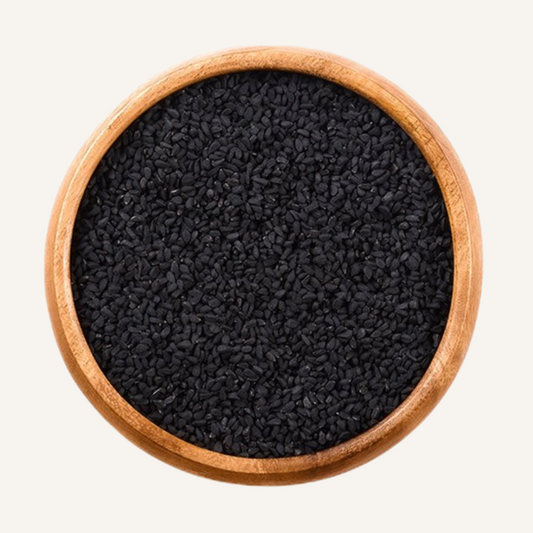
10 Tips for Eating Healthily on a Budget
Abdullaah KhanShare
Hey there, health-conscious friends! Eating healthy doesn't have to break the bank. In fact, with a little bit of planning and smart shopping, you can nourish your body and mind without putting a dent in your wallet.
In this comprehensive guide, we'll explore ten practical tips that will help you eat healthily on a budget. So, let's dive in and discover how to make nutritious choices without compromising your financial goals!
Plan Your Meals:
Meal planning is a powerful tool for eating healthily on a budget. By taking some time to plan your meals in advance, you can ensure that you have a well-rounded, nutritious diet while minimizing food waste and impulsive purchases.
Sit down once a week and create a meal plan for the upcoming days, including breakfast, lunch, dinner, and snacks. Consider using ingredients you already have on hand and build your shopping list accordingly.
Embrace Seasonal and Local Produce:
Seasonal fruits and vegetables not only taste better but are often more affordable. They are in abundance during their peak seasons, leading to lower prices. Explore your local farmers' markets or consider joining a community-supported agriculture (CSA) program to access a variety of delicious and budget-friendly produce.
Additionally, buying directly from local farmers supports your community's economy.
Buy in Bulk:
Buying staple foods in bulk can save you a significant amount of money in the long run. Foods like grains (rice, quinoa, oats), legumes (beans, lentils), nuts, and seeds have a long shelf life and are often cheaper when purchased in larger quantities.
Look for bulk bins at your local grocery store or consider shopping at wholesale clubs. Properly store these items in airtight containers to maintain their freshness.
Cook at Home:
Eating out can quickly drain your budget. Instead, challenge yourself to cook at home more often. Not only does cooking at home give you control over the ingredients you use, but it also allows you to experiment with flavors and cooking techniques.
Get creative in the kitchen, try out new recipes, and involve your family or friends in the process. Cooking at home not only promotes healthier choices but also saves you money.
Utilize Leftovers:
Leftovers don't have to be boring! Get creative and transform them into new, exciting dishes. For example, leftover roasted chicken can become a delicious addition to salads, sandwiches, or stir-fries.
By repurposing leftovers, you minimize food waste and maximize your budget. Invest in reusable containers to store and organize leftovers conveniently.
Compare Prices and Shop Smart:
Before heading to the grocery store, take the time to compare prices at different stores in your area. Look for sales, discounts, and coupons to maximize your savings. Consider generic or store brands, as they are often more affordable without compromising quality.
Additionally, be mindful of unit prices to ensure you're getting the best value for your money. Shopping with a full stomach can also help reduce impulse buying!
Opt for Plant-Based Proteins:
Meat can be a significant expense in your grocery budget, especially if you opt for organic or grass-fed varieties. Incorporating plant-based proteins into your meals can help you save money while providing essential nutrients.
Legumes (such as beans, lentils, and chickpeas), tofu, tempeh, and quinoa are all excellent sources of plant-based protein. Experiment with different recipes to make them delicious and satisfying.
Minimize Processed Foods:
Processed foods often come with a higher price tag and are generally less nutritious compared to whole foods. Opt for whole foods whenever possible, such as fresh fruits, vegetables, whole grains, and lean proteins.
Not only are they more budget-friendly, but they also offer greater health benefits. Whole foods give you the freedom to get creative in the kitchen and prepare delicious, wholesome meals.
Make Batch Meals and Freeze:
When you have some spare time, consider preparing large batches of meals and freezing individual portions. This way, you'll always have a healthy, home-cooked meal ready to go, saving you from ordering takeout or resorting to unhealthy convenience foods when you're short on time.
Invest in quality food storage containers and label them with the name and date of preparation for easy organization.
Grow Your Own Herbs and Vegetables:
If you have some outdoor space or even a few pots indoors, consider growing your own herbs and vegetables. Fresh herbs like basil, mint, and rosemary can elevate the flavor of your meals, while growing your own vegetables can save you money in the long term.
Plus, gardening can be a fun and rewarding activity that allows you to connect with nature and appreciate the food you grow.
Conclusion:
Eating healthily on a budget is entirely achievable with a little planning, creativity, and mindfulness. By following these ten comprehensive tips, you can nourish your body while also keeping your finances in check.
Remember, it's all about making informed choices and finding joy in the process. Start implementing these strategies today, and enjoy a healthier and budget-friendly lifestyle!
References:
- Harvard Health Publishing. (2019). Healthy eating on a budget. Retrieved from https://www.health.harvard.edu/staying-healthy/healthy-eating-on-a-budget
- The Nutrition Source. (2021). How to eat healthy on a budget. Retrieved from https://www.hsph.harvard.edu/nutritionsource/healthy-eating-on-a-budget/
- FoodPrint. (n.d.). 7 tips for eating healthy on a budget. Retrieved from https://foodprint.org/blog/healthy-eating-on-a-budget/
- EatRight. (n.d.). Eating right on a budget. Retrieved from https://www.eatright.org/food/planning-and-prep/smart-shopping/eating-right-on-a-budget








